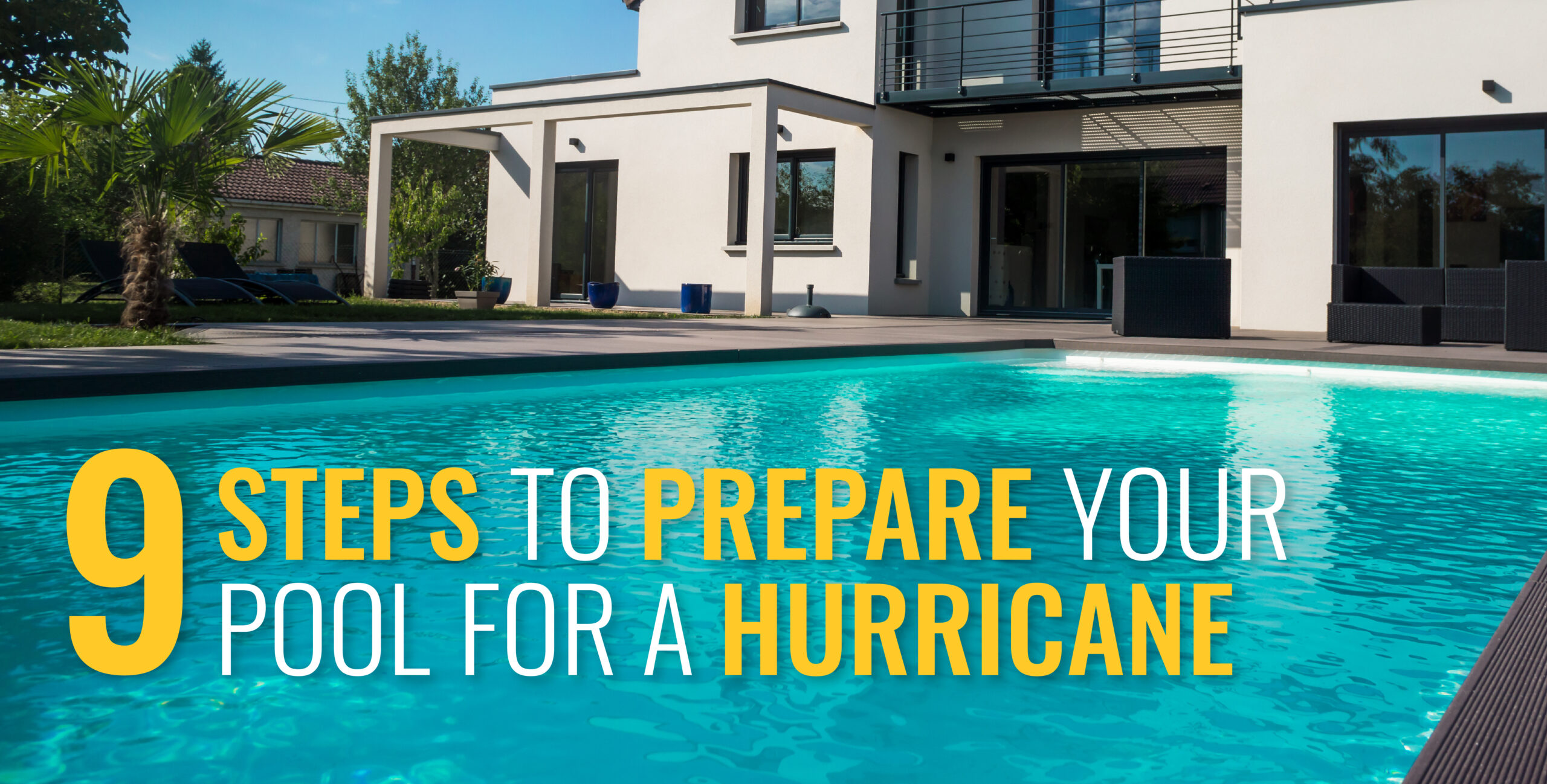As hurricane season approaches, it's crucial to ensure the safety of your property, including your…

How Can I Help My Customers Find the Correct Heat Pump Pool Heater for Their Swimming Pools?
Helping your customers select the right swimming pool heat pump begins with understanding their needs. By asking a few questions, you can suggest the best heat pump pool heater for the customer’s needs and budget. Let’s discuss what you need to know before making a recommendation.
The first thing you need to determine is the size of heat pump your customer needs. How do you determine this? Some dealers use a rule of thumb method, based solely on the square footage of the pool. This method will give a reasonable estimate of the size of heat pump pool heater needed. However, it fails to consider several factors that will affect the performance of the heater, which will affect your customer’s satisfaction with you.
Although square footage is an important consideration, we must also look at other factors. Geographical location is first on this list. Most manufacturers have sizing programs that start with the pool location for AquaCal’s click here. Geographical location is important because the average air temperature where the pool is located has a major impact on the “total temperature rise” required. The total temperature rise is the temperature difference between what the pool temperature would be if it were unheated and the desired temperature. The total temperature rise required establishes a base line for the daily temperature loss the pool will experience.
That daily temperature loss is influenced by several factors. Whether or not the pool is blanketed average wind speed and water features such as fountains, overflows and negative edge features all contribute to total heat loss.
You must be sure that the heat pump pool heater you select can not only heat the pool based on the pool size, but can also make up for the heat losses mentioned. The unit must be capable of replacing the heat lost during the off cycle, which is typically overnight. Asking about the user’s pool use habits can help you to better calculate how much heat will be lost during the off cycle.
Most pool owners swim in the afternoons. This allows the heat pump pool heater sufficient run time to replace the heat loss experienced overnight. However, some pool owners like to swim early in the morning, especially those who use their pool for exercise. For these customers, proper model selection should include the hot gas defrosts feature, which is available on some models. This feature allows the heater to continue to operate in air temperatures below the 40°F to 45°F range, where standard defrost models simply shut down until the air warms up. If the heater will not run during cooler overnight conditions, the pool will not be warm in the morning. In addition, heat pump pool heaters remove heat from the surrounding air. As air temperatures cool, the heat output of the heat pump will be reduced. Taking this into account is key to selecting the correct size heater.
Further complicating your decision is the fact that many pool owners have an adjacent spa. In many cases, the owner will want the heat pump pool heater to heat their spa as well as the pool. Use patterns for spas tend to be in the evening and nighttime periods. Again, this is typically when the air cools and the defrost issue is a factor. The hot gas defrosts models address this issue. Choosing to use the heat pump pool heater as a spa heater should also weigh the sizing selection process to the larger models available. This will give the owner the most rapid heat-up time available. The higher the BTU capacity of a heat pump, the faster it will heat the spa and the pool.
Finally, there is the budget. The efficiency of heat pump pool heaters varies widely. Typically, higher-efficiency models carry a higher price tag. It is usually worth the investment, as the purchase price is a onetime event, while the electric bills are a monthly expense. Keeping operating expenses to a minimum is important for most customers, so don’t forget to educate them on the long-term costs savings of purchasing a high efficiency unit.
In summary, you should recommend a heat pump pool heater that:
- Is capable of heating the your customers pool based on size AND
- Has enough BTU overhead to make up for heat losses and pool use pattern.
You will find several units that meet these requirements, but the one that offers the highest efficiency within your customer’s budget is the one to recommend.
A few questions are all that’s necessary to help your customer select the perfect heat pump pool heater. Questions? You can always contact us or leave a comment below, we would love to help!




Heat pumps for swimming pools are always headed up with so many big problems. Like it does not stops on pressing the off button or it get heat up it self and so many more. These are such nice and useful tips for this stuff.
WE HAVE A 180M2 POOL OF Im deep (180m3) in Doha Qatar
what heat pump do I need for heating and cooling (especially cooling)
and can you send me a quatation